Episodes
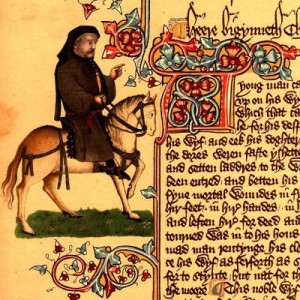
Tuesday Sep 27, 2022
The Wife of Bath and the Meaning of Marriage with Prof. Adam Cooper
Tuesday Sep 27, 2022
Tuesday Sep 27, 2022
Geoffrey Chaucer begins The Canterbury Tales describing the beauty of April and the countryside coming back to life. It is the time, he tells us, “Than longen folk to goon on pilgrimages.” “And specially,” he adds, “from every shires ende / Of Engelond to Caunterbury they wende.”
A small company of pilgrims forms and, as the go, each tells a tale.
Like the Samaritan woman Jesus spoke with in John chapter four, The Wife of Bath says she has had five husbands not to mention “other companye in youthe.” She is a wealthy woman who had been on pilgrimage as far as Jerusalem. She is also rather fond of sex and knows quite a bit about marriage.
Prof. Adam Cooper has been reading The Canterbury Tales with Wyoming Catholic College juniors and shared these thoughts.
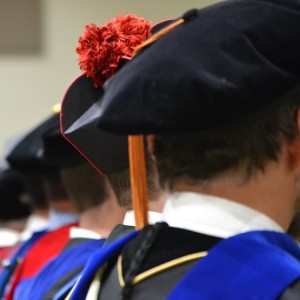
Tuesday Aug 30, 2022
Attuning Self to Community: Matriculation Address 2022 by Dr. Glenn Arbery
Tuesday Aug 30, 2022
Tuesday Aug 30, 2022
At Wyoming Catholic college, “Ours is an education of immersion: immersion in the Western tradition, immersion in the beauty and challenges of the wilderness, immersion in the treasures of our Catholic spiritual heritage.” Last Monday fifty-six freshmen, back from their 21-day backpacking expedition, began their immersion at Wyoming Catholic College.
It is customary, as you might imagine, for the college president, Dr. Glenn Arbery to address the new freshmen. Here is what Dr. Arbery had to say last week to the Wyoming Catholic College class of 2026.
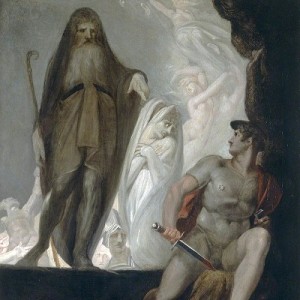
Tuesday Aug 02, 2022
Journeys Among the Dead by Dr. Glenn Arbery
Tuesday Aug 02, 2022
Tuesday Aug 02, 2022
In his poem The Four Quartets, T. S. Eliot wrote:
“What the dead had no speech for, when living,
They can tell you, being dead: the communication
Of the dead is tongued with fire beyond the language of the living.”
In Homer’s Odyssey, Virgil’s Aeneid, and Dante’s Divine Comedy, we read about encounters with those who have died. Odysseus seeks wisdom from the prophet Teiresias and his mother, Anikleia (Odyssey 11.1-224). Aeneas meets his father Anchises, parent and prophet (Aeneid 6.739-983). And Dante holds a long conversation in Heaven with his great-great-grandfather, Cacciaguida who also assumes the role of prophet (Paradiso 15-17).
What can we learn from these fictional encounters with the dead? Dr. Glenn Arbery gave this introduction at the 2022 Wyoming School of Catholic Thought.
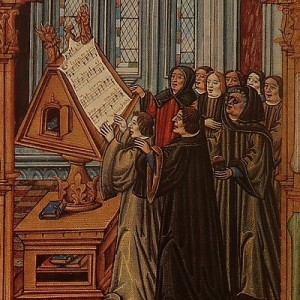
Tuesday Jun 21, 2022
A Semester of Latin Hymns with Prof. Eugene Hamilton
Tuesday Jun 21, 2022
Tuesday Jun 21, 2022
NUNC, Sancte, nobis Spiritus,
unum Patri cum Filio,
dignare promptus ingeri
nostro refusus pectori.Now, O Holy Spirit (given) for us
One with the Father (and) the Son
condescend to enter [us] at once
(you) having been poured into our breasts
Wyoming Catholic College students study Latin during their freshman and sophomore years. From there they move to two years of Latin reading groups. One of the groups this last semester read Latin hymns including Nunc Sancte nobis Spiritus.
Prof. Eugene Hamilton—better known simply as Magister—led the reading group along with Dr. Travis Dziad. Prof. Hamilton is our guest on this podcast.

Tuesday May 24, 2022
”Ode to Constantine XI” with Prof. Adam Cooper
Tuesday May 24, 2022
Tuesday May 24, 2022
O last of Rome, among small-minded citizens,
The bickering children of your mother’s house,
Your gaze was calm and grave and kind
As is the glowing lamp
Upon the holy ikon’s deep-set brow.
Those lines are from the latest issue of the Wyoming Catholic College publication Integritas. They are the beginning of a poem called “Ode to Constantine XI” by Prof. Adam Cooper. While this podcast has featured any number of conversations about poem, it is a rare treat to feature a poem along with the poet.
To read "Ode to Constantine XI in Integritas click this link.
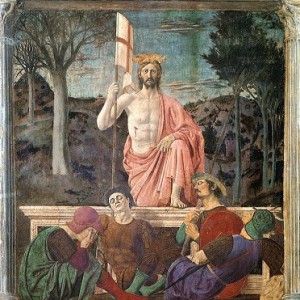
Tuesday Apr 19, 2022
George Herbert’s Easter Poems with Dr. Glenn Arbery
Tuesday Apr 19, 2022
Tuesday Apr 19, 2022
These lines are from George Herbert's poem "Easter Wings." Herbert, a contemporary of William Shakespeare and John Milton, lived 1593 to 1633. In addition to being a poet he was a Church of England priest and theologian. Wyoming Catholic College president Dr. Glenn Arbery has long been an admirer of Herbert’s metaphysical poetry including “Easter Wings” and a poem simply entitled “Easter.”
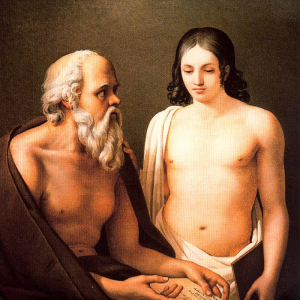
Tuesday Nov 30, 2021
The Nature of Poetry: Socrates‘ Dialogue with Ion with Dr. Pavlos Papadopoulos
Tuesday Nov 30, 2021
Tuesday Nov 30, 2021
Each semester here at Wyoming Catholic College, we hold an “All-School Seminar.” All students, faculty, and any interested staff read the same work and meet in groups led by our seniors to discuss what they’ve read. This fall’s All-School Seminar was Plato’s dialogue between Socrates and Ion.
In the dialogue, Socrates greets Ion, a rhapsode, that is, a reciter of poetry. Ion specializes in the work of the epic poet Homer—The Iliad and The Odyssey. When Socrates meets him, he is returning from a religious festival where in competition with other rhapsodes, he took first prize for his recitation.
This week, Dr. Pavlos Papadopoulos, shares with us about Socrates’ and Ion’s conversation.

Tuesday Sep 28, 2021
Aeneas: Journey into the Underworld with Dr. Adam Cooper
Tuesday Sep 28, 2021
Tuesday Sep 28, 2021
After fleeing the destruction of Troy while leading his young son and carrying his aged father, Aeneas wandered seven years across the Mediterranean. Finally, after his father's death, he and his ships made landfall in Italy. This was the land of his destiny. There he would conquer, establish the Trojans, and found the kingdom that would become Rome.
But before setting out to war, Aeneas told the Sibyl of Apollo, “Since here, they say, are the gates of Death’s king and the dark marsh where the Acheron comes flooding up, please, allow me to go and see my beloved father, meet him face-to-face.”
Dr. Adam Cooper has been reading Virgil’s Aeneid with our Wyoming Catholic College sophomores, guiding them as the Sibyl guided Aeneas into the Underworld.

Tuesday Jun 22, 2021
"As Kingfishers Catch Fire" with Dr. Pavlos Papadopoulos
Tuesday Jun 22, 2021
Tuesday Jun 22, 2021
As kingfishers catch fire, dragonflies draw flame;
As tumbled over rim in roundy wells
Stones ring;
Gerard Manley Hopkin’s sonnet, “As Kingfishers Catch Fire,” has become one of the poems Wyoming Catholic College graduates memorized over the course of four years. And it’s the one our seniors, as a class, recited during their weekend of graduation festivities. The recitation was led by Dr. Pavlos Papadopoulos who has a great personal love for this challenging poem.
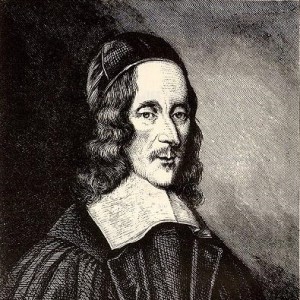
Tuesday Jun 15, 2021
George Herbert's "Love (III)" with Dr. Tiffany Schubert
Tuesday Jun 15, 2021
Tuesday Jun 15, 2021
“Love bade me welcome: yet my soul drew back,” begins George Herbert’s poem “Love (III).” It’s one of the 26 poems students at Wyoming Catholic College memorize over their four years and one of the most beloved.
George Herbert, an Anglican clergyman, lived a mere 39 years, from 1593 to 1633. Yet the great Puritan pastor and theologian, Richard Baxter said of him, “Herbert speaks to God like one that really believeth in God, and whose business in the world is most with God. Heart-work and heaven-work make up his books.”
Dr. Tiffany Schubert taught the poem this year and began this interview by telling us something about poet George Herbert.

